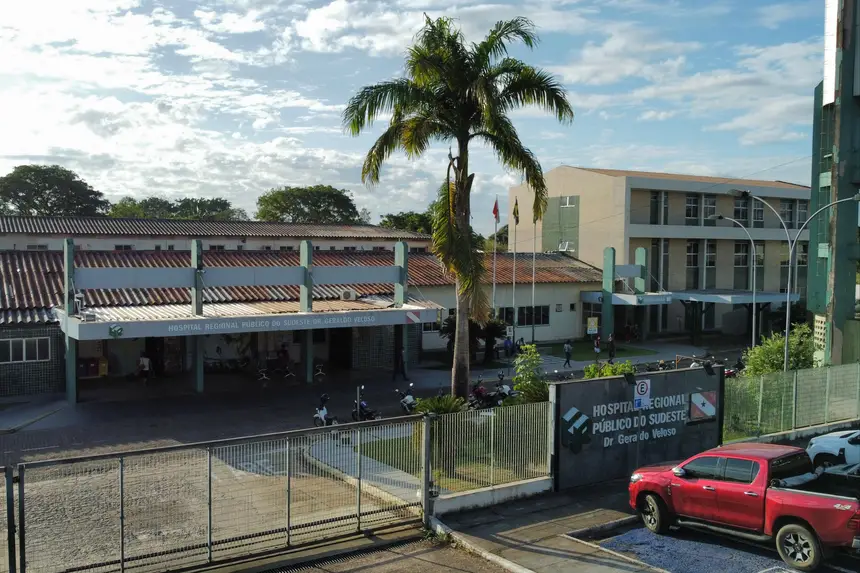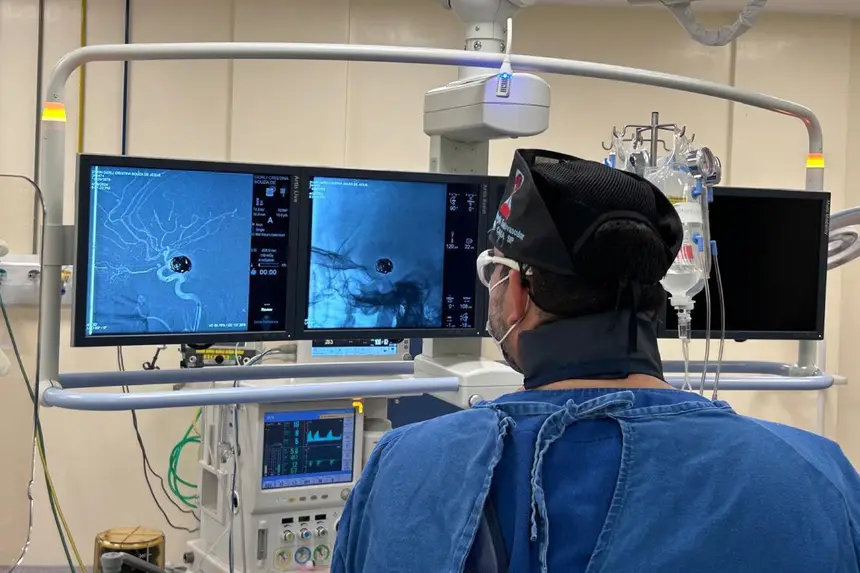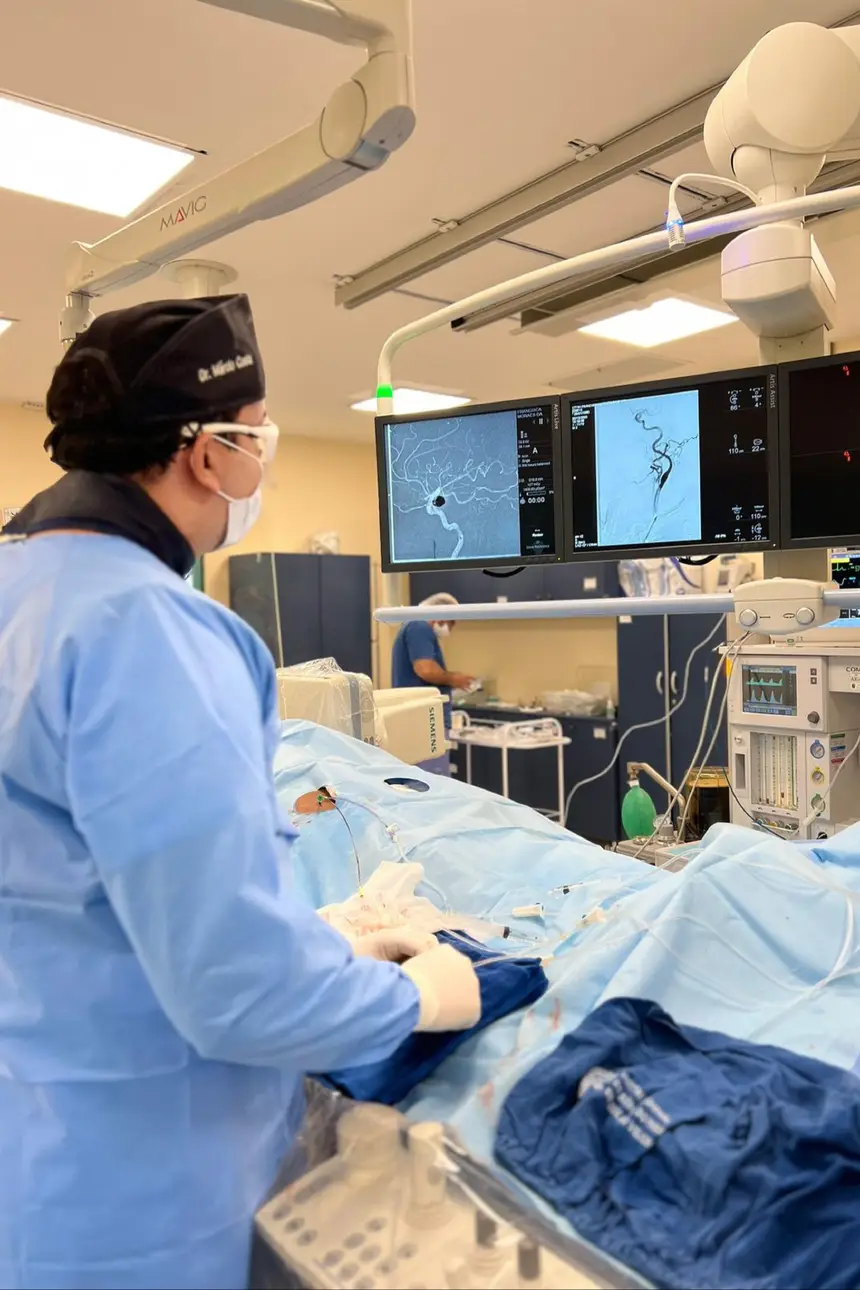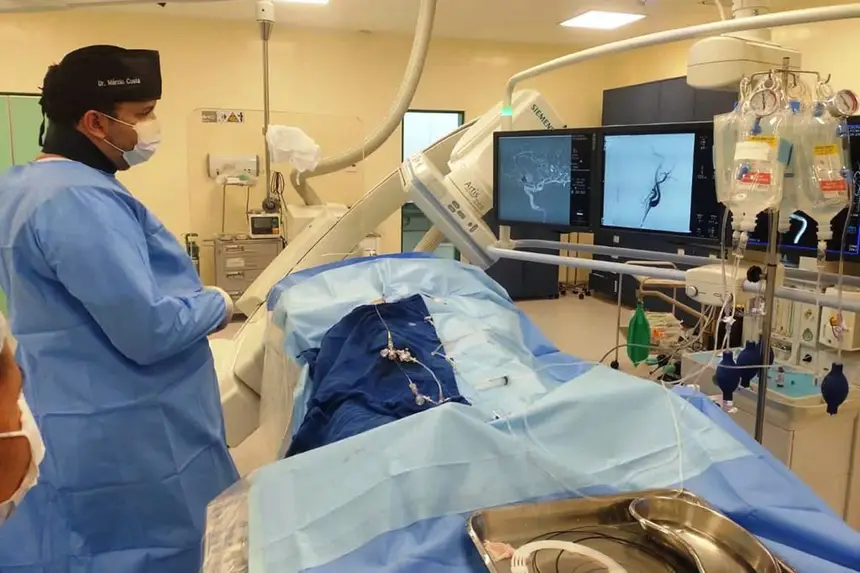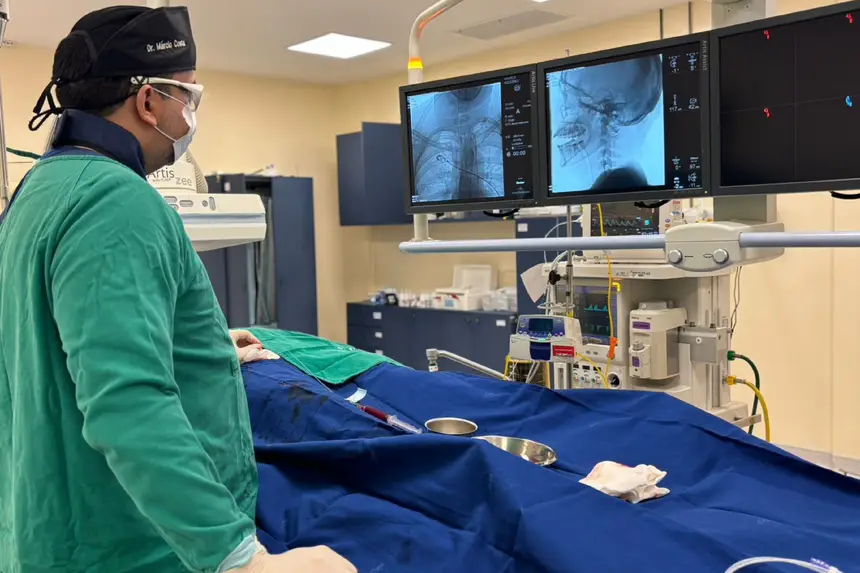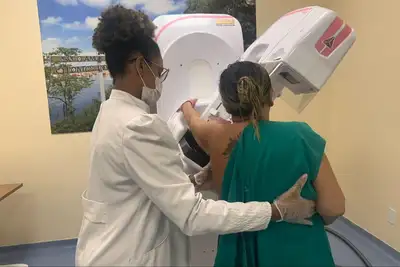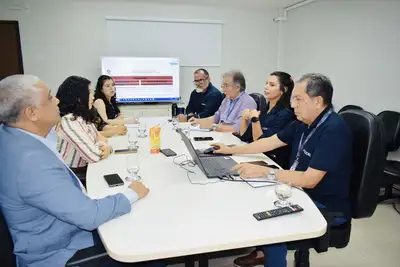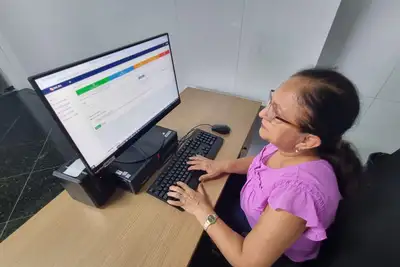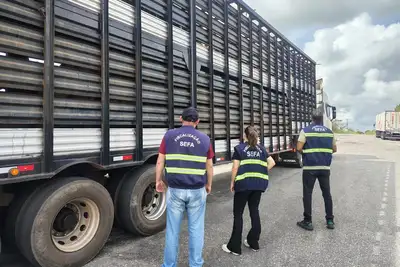Marabá Hospital Saves Lives with Prevention and Treatment of Cerebral Aneurysm
The unit ensures hemodynamics service and a specialized team for rapid diagnosis and cutting-edge treatment to save lives
September is dedicated to raising awareness about cerebral aneurysm, a silent disease that, according to the World Health Organization (WHO), can affect up to 2% of the global population. The condition is among the leading causes of death worldwide.
In Marabá, the Regional Hospital of Southeast Pará – Dr. Geraldo Veloso (HRSP) has been performing cerebral embolization in the hemodynamics service since June 2022, capable of treating the aneurysm without the need for open surgery. The minimally invasive procedure has already saved 104 lives, offering high-complexity treatment.
Rosilene dos Santos lives in the Carajás region and discovered her aneurysm after experiencing a severe and persistent headache. She received immediate care, which restored peace to her family. “I felt like my life was hanging by a thread, but when I arrived here, I was welcomed quickly and with care. Today I have hope and gratitude for everything, thank you all,” she reported.
Another case is that of Lúcio Flávio Lima, also a resident of the Carajás region. He recalls the moment he received the diagnosis and the impact of the treatment at the Regional Hospital. “I thought I wouldn’t have any more chances, but here I found prepared doctors and a team that gave me confidence. Every care I received was like a rebirth, and today I can only express gratitude for being alive and able to return to my family,” he emphasized emotionally.
Nurse Crisila Reis, responsible for the department, highlights that the unit has one of the most modern hemodynamics equipment in Pará. “The technology used in exams and procedures ensures accuracy in diagnosis and greater safety during embolization, favoring a faster recovery for patients,” she explained.
Symptoms and treatment
According to neurosurgeon Márcio Costa, a subspecialist in interventional neuroradiology who works in the hemodynamics service at the Regional Hospital in Marabá, cerebral aneurysm is a serious condition characterized by the weakening and abnormal dilation of a wall of an artery in the brain, creating a vulnerable point for rupture.
"Symptoms appear suddenly and often include severe headaches, frequently reported by patients as 'the worst pain of their lives.' Nausea, vomiting, loss of consciousness, and neurological changes may also occur. All these signs require immediate medical attention," the professional emphasizes.
To treat the disease, cerebral embolization is performed, a modern and minimally invasive technique. “With thin microcatheters, inserted through the femoral artery in the groin and guided by real-time imaging, we place microcoils inside the aneurysm, blocking blood flow and preventing rupture,” explains Marcio.
According to the neurosurgeon, the technique offers several benefits: it avoids opening the skull, reduces postoperative complications, decreases pain, shortens the hospitalization period, and ensures a faster and safer recovery. “Every patient who comes to us is treated with the utmost urgency and care. Our mission is to transform fear into hope and restore quality of life to people,” concludes the doctor.
Prevention - Check the neurosurgeon's guidelines:
Control blood pressure: maintain adequate levels with medical supervision;
Quit smoking: smoking increases the risk of aneurysm rupture;
Avoid excessive alcohol consumption: moderation is essential for vascular health;
Engage in regular physical activity: strengthens the cardiovascular system;
Maintain a balanced diet: reduce salt, saturated fats, and ultra-processed foods;
Have periodic check-ups: exams can identify risk factors early;
Reduce stress: relaxation techniques and adequate sleep help protect the heart and brain;
Structure - The Regional Hospital of Southeast Pará "Dr. Geraldo Veloso" is managed by the Institute of Social and Environmental Health of the Amazon (ISSAA), in partnership with the State Department of Public Health (Sespa). The unit offers 100% of services through the Unified Health System (SUS). The Hospital has 135 beds, with 97 designated for clinical hospitalization and 38 dedicated to Adult, Pediatric, and Neonatal Intensive Care Units (ICU).
Text by Ederson Oliveira


